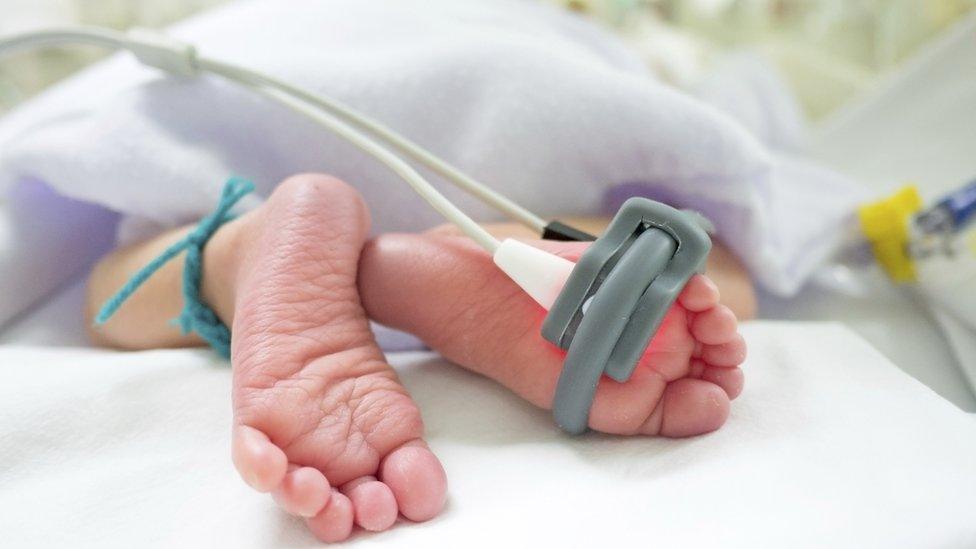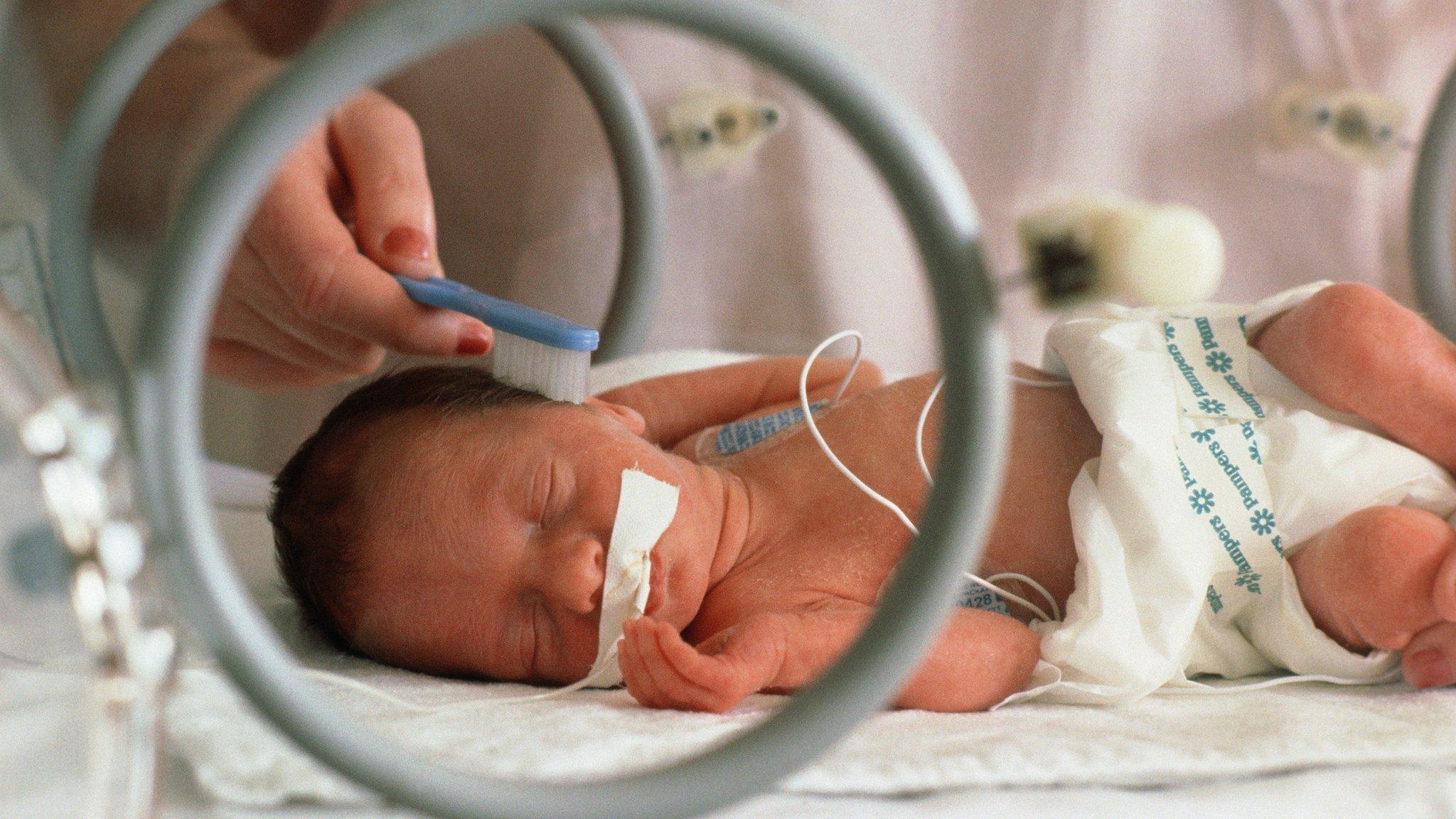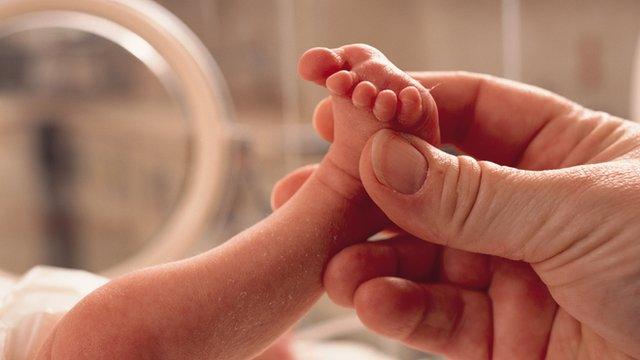'Unacceptable gaps' in NHS baby transfer service
- Published

There are completely unacceptable gaps in NHS services designed to help sick and premature babies, a child health expert says.
A snapshot survey by the charity Bliss showed neonatal transport services in the UK were understaffed and under-resourced.
The charity says some babies are having to wait too long for life-saving care.
But NHS England says care is as good as other European countries, despite growing demand.
Funding cuts
Nearly 16,000 babies are transferred between hospitals in the UK each year using 17 dedicated transfer services (13 in England, two in Wales, one in Scotland and one in Northern Ireland).
These often include specially kitted-out vehicles that have incubators, resuscitation equipment and specially trained staff.
These vehicles can be used, for example, to move a baby born early to an intensive care or surgical centre that only some hospitals have access to.
But the Bliss survey, looking at one week across the UK in 2015, found six out of 11 transfer services that provided data had gaps in their staff rotas.
Prof Neena Modi, leader of the Royal College of Paediatrics and Child Health, said staff shortages were a long-term issue and that neonatal services had faced substantial funding cuts.
"Delay in transfer can seriously adversely affect a baby's chances of a good outcome, so this is completely unacceptable for a modern health service."
'Quality of life'
And the report showed nearly 1,000 babies across the UK were transferred every year because neonatal units did not have capacity for them.
Separately the survey also found eight units in England were not able to transfer babies within one hour of receiving a call, as NHS standards recommend.
The report authors say the government and NHS need to resolve shortages in staff and put more money towards services "so that every baby has the best chance of survival and quality of life".
Meanwhile an NHS England spokesperson said: "Despite increasing demand, studies consistently show standards of NHS neonatal care are equivalent to other European countries.
"We continue to work across the health service to improve neonatal services, ensuring every premature or sick baby achieves the best outcomes and care within the resources available."
The Scottish Ambulance Service said three specialist neonatal retrieval teams provide round-the-clock cover across the country.
A spokesman added: "We operate with dedicated neonatal ambulances, as well as Scottish Ambulance Service planes and helicopters, delivering high quality clinical care for sick babies in Scotland."
Northern Ireland's health service launched an expanded 24/7 neonatal transfer service in 2014.
- Published19 October 2015

- Published20 August 2015

- Published5 November 2015
